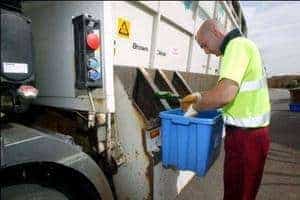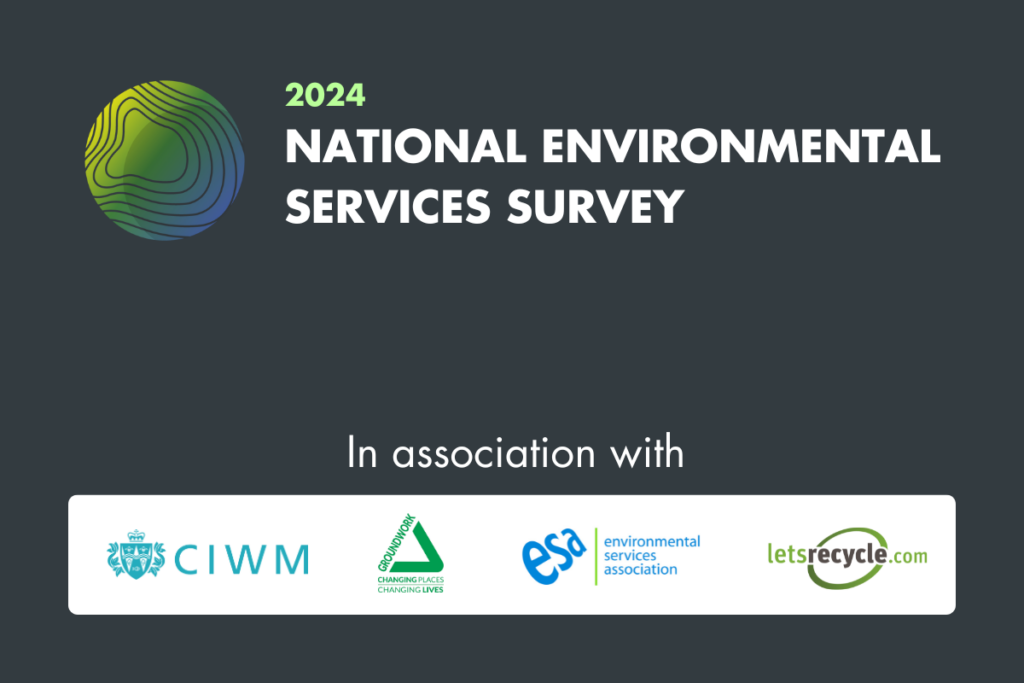Ricardo-AEA has warned that the MRF Code of Practice regulations could apply to a number of local authorities sorting kerbside collected material, although Defra is of the view that the regulations only apply to regulated facilities.
Writing in the latest issue of Resource Management and Recovery (RMR) magazine, waste management consultants Dr Adam Read and Victoria Hutchin of Ricardo-AEA argue that the minimum tonnage levels for regulated facilities mean that local authorities operating sorting depots for kerbside separated collections must comply with MRF Code regulations.

They state that many local authorities are unaware this is the case, highlighting wording in the Code which defines a regulated ‘materials facility’ as including those which transfer material to other facilities or persons to enable that material to be recycled by those facilities or persons.
This definition, they argue, would appear to include many local authority collections.
Defra
But, a Defra spokeswoman told letsrecycle.com that the MRF (materials recycling facility) Regulations, which will apply from October (see letsrecycle.com story), is intended for regulated facilities only and does not apply to councils operating kerbside sort collections.
The Code requires all MRFs and commercial sorting operations over a certain size to measure the quality of their outputs, and operators of qualifying facilities are asked to notify the Environment Agency of their reporting obligations under the new regulations by December 2014 at the latest.
Dr Read and Ms Hutchin say this applies to councils operating kerbside sort collections if they are collecting more than 1,000 tonnes of two or more of the target materials glass, metals, paper and plastics mixed together. The rules would apply because even though these materials have been partially sorted by the householder and the collector, the final sorting stage takes place at the depot.
Authorities in England that would appear to operate kerbside sort collections fitting within this definition include Bristol city council, Ealing borough council, Hackney borough council and Wiltshire county council.
‘These regulatory changes could bring significant financial impacts to local authorities, the most direct of which being additional costs of complying with the regulations passed to the authority from its MRF operator, or direct costs to the authority where they will need to undertake their own sampling.’
Adam Read and Victoria Hutchin, Ricardo-AEA consultants
Costs
Dr Read and Ms Hutchin argue that if the regulations apply to kerbside sort collections, this could have significant financial impacts on local authorities namely the costs of complying with the regulations.
If so, local authorities collecting mixed materials in this manner would have to notify the Environment Agency or Natural Resources Wales (NRW) before the end of the reporting period October 1 2014 to September 30 2015 if they are likely to qualify.
But, the consultants note, this is not mentioned in the Waste & Resources Actions Programmes (WRAP) Sampling and Testing Guidance for Materials Facilities, which instead highlights only MRFs and commercial waste sorting operations as those likely to fall under the scope of the Code.
According to Dr Read and Ms Hutchin, 69% of authorities in England and Wales currently collect some form of mixed materials, with 20 of the top 30 performing councils for recycling in 2012/13 operating commingled collections.
Impact assessment
They highlight the MRF Codes Impact Assessment, which estimated the annual costs for undertaking the required testing could be between 12,010 for smaller facilities up to 54,650 for larger facilities on top of the proposed annual 2,240 (2,065 in Wales) payable to the regulatory bodies.
Thus, depending on the size of the facility, this could equate to costs for qualifying facilities or council collections of between 2 and 14 per tonne.
The consultants claimed: These regulatory changes could bring significant financial impacts to local authorities, the most direct of which being additional costs of complying with the regulations passed to the authority from its MRF operator, or direct costs to the authority where they will need to undertake their own sampling.
Local authorities with only 1,000 tonnes of target mixed materials may have to find thousands of pounds within their already stretched budgets, just to be compliant. In addition to this, an estimated 6,500 of one-off equipment costs for scales, sorting tables and containers.










Subscribe for free